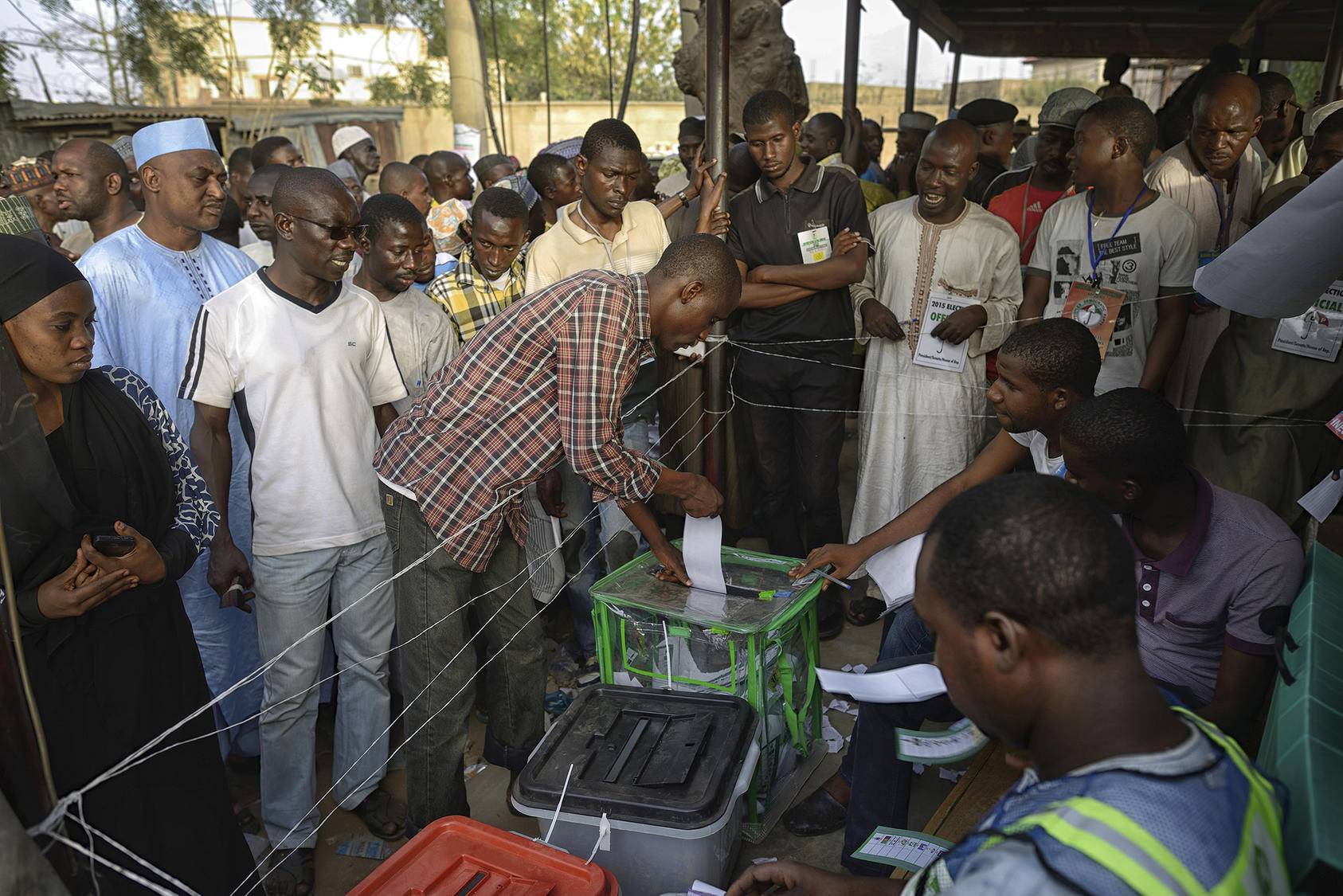Last weekend’s sudden, one-week postponement of Nigeria’s presidential and state elections—to February 23 for the presidential elections and March 9 for the state elections—escalated public anxiety amid an already tense political environment. The Independent National Electoral Commission’s (INEC) last-minute announcement, hours before voting was set to commence, cited logistical problems. The delay and its aftermath demonstrate that INEC must immediately improve its transparency and communications. Despite the tensions caused by the delay, the election commission now has the opportunity to rectify flaws and deliver a more credible election.

This is not the first time an election has been postponed in Nigeria. In 2011, polls were postponed in some areas while voting was ongoing, and in 2015, polls were delayed by six weeks due to security concerns. This time around, the abrupt announcement of the delay put a spotlight on the problems with INEC’s strategic communications. Moving forward, the commission’s ability to effectively communicate with citizens and stakeholders at the national and state level will go a long way in reassuring the 84-million registered Nigerian voters of the credibility of the elections. In the end, peaceful and credible elections will strengthen Africa’ largest democracy and set up any government that emerges after the vote to more successfully address the country’s challenges.
Nigeria’s Democratic Development
This year marks two decades since Nigerians restored democratic, multiparty constitutional rule. In 2015, they accomplished the country’s first-ever peaceful presidential transition to an opposition candidate. As Africa’s most populous nation and a regional powerhouse—where developments good or bad spill over to affect all its neighbors—Nigeria can be proud of those achievements.
Still, the country is wrestling with daunting problems, especially widespread violence such as the deadly clashes between farmers and herders over a complex range of issues, including access to usable land. Political leaders have used this spiraling crisis to stoke ethnic and religious tensions, seizing on the fact that many, though not all, farmers are Christian and many, though not all, herders are Muslim.
Incumbent President Muhammadu Buhari, his main challenger Atiku Abubakar, and their respective political parties signed an election peace accord on February 13, pledging to refrain from incitement. Nonetheless, there are growing fears that similar forms of propaganda used to incite violence in the lead up to the postponed elections could also taint Nigeria’s rescheduled polls. The two main political parties are blaming each other for the postponement of the elections, claiming the delay was politically motivated rather than caused by logistical challenges.
Propaganda and disinformation by political parties and their supporters during the electoral campaigns is polluting the space for public debate. These strains were exacerbated by the last-minute announcement of delay. Following months of repeatedly reassuring citizens that it was ready, the INEC chairman announced the postponement just hours before polls were set to open. But news media had already earlier reported the possibility of a delay, leading to widespread confusion and suspicion. What should the commission and other stakeholders do now?
Next Steps
In the final days before the rescheduled vote, the INEC must improve its communications to the public, particularly to win back citizen confidence. It should continue to provide regular daily updates on exactly what actions it is taking to ensure preparations are complete.
Given the information vacuum and suspicion created after the delay, the immediate aftermath of Saturday’s elections, before the results are announced, will be critical. INEC should be transparent in its post-election communication, providing and reiterating in advance strong and clear statements regarding what happens after polling closes.
Beyond the daily briefings, it will be critical for INEC to decentralize information on its planning and preparations, particularly for the state elections which—USIP research has shown—hold a higher potential for violence.
At the civil society level, actors observing the process should continue to work together, especially to coordinate the release of their different reports and statements for both the national and state elections. In this atmosphere of mistrust, civil society has a vital role to play in ensuring voter confidence in the electoral process.
By keeping attention on Nigeria and its elections, the U.S. and other allies in the international community can also play a critical role by simply showing Nigerian leaders that they are under the spotlight. U.S. Secretary of State Mike Pompeo’s phone call to President Buhari and Atiku Abubakar in advance of the election was important. Further U.S. diplomatic engagement should focus on encouraging political leaders to adhere to the peace accords they have signed and follow proper legal processes should the polls be contested, as they likely will.
Nigerians are already so divided that it is difficult to sit down to reasonably discuss the crucial issues facing the country. The country’s political leaders have a special responsibility to moderate their language, avoid inflammatory speech and encourage their supporters to keep the peace through these elections and beyond.
As Nigeria looks to consolidate its democracy, the words and actions of the winners of the national and state-level elections will either provide a constructive foundation for continued progress or exacerbate existing conflicts. What happens next will profoundly impact the ability of any government that emerges after the elections to guide the country successfully and advance Nigeria’s democratic development.
Oge Onubogu is a senior program officer for Africa programs at USIP. Idayat Hassan is the director of the Centre for Democracy and Development–West Africa, an Abuja-based policy advocacy and research organization.



